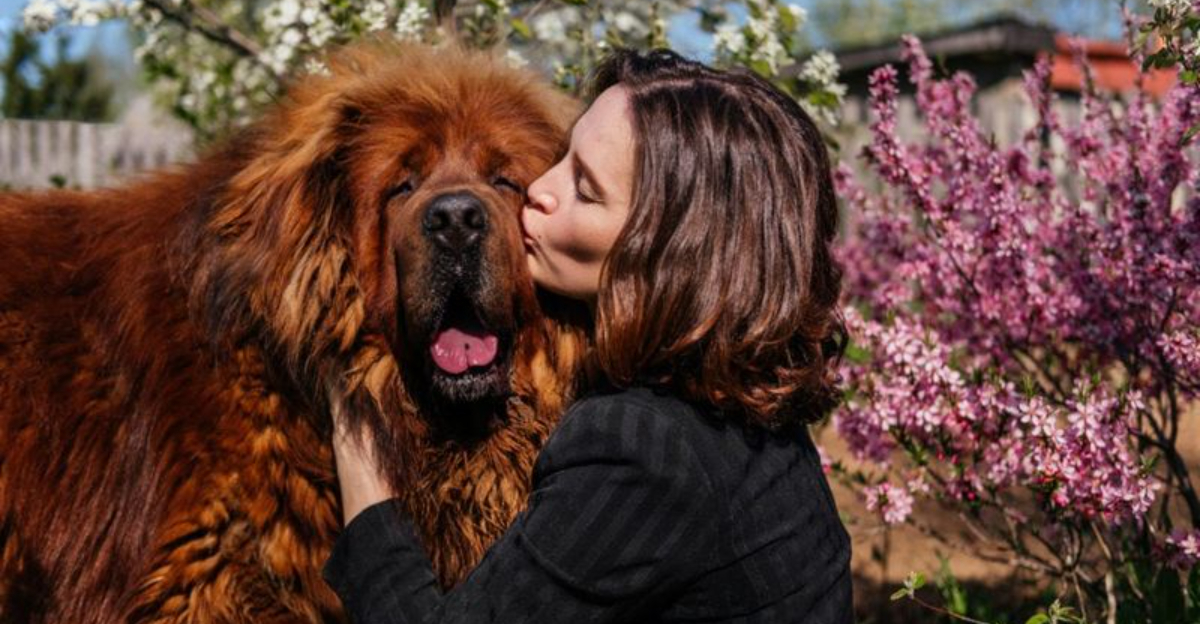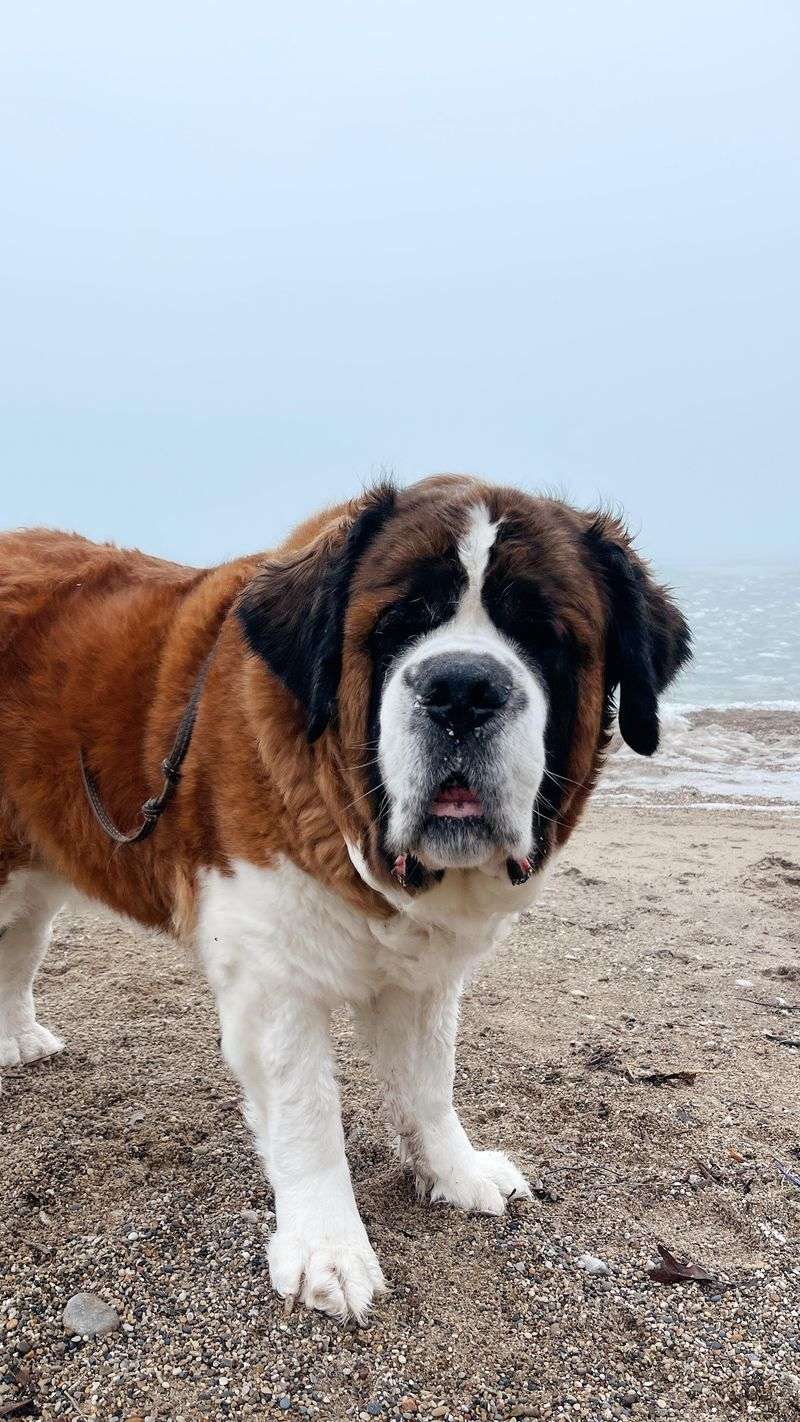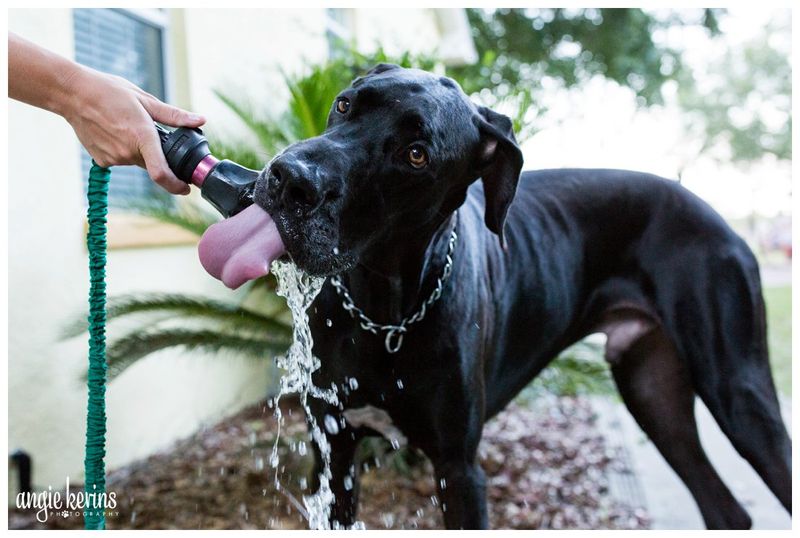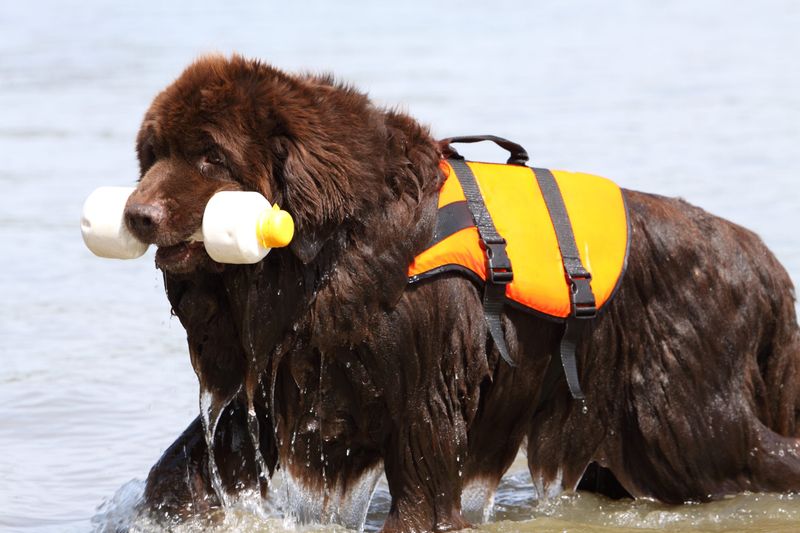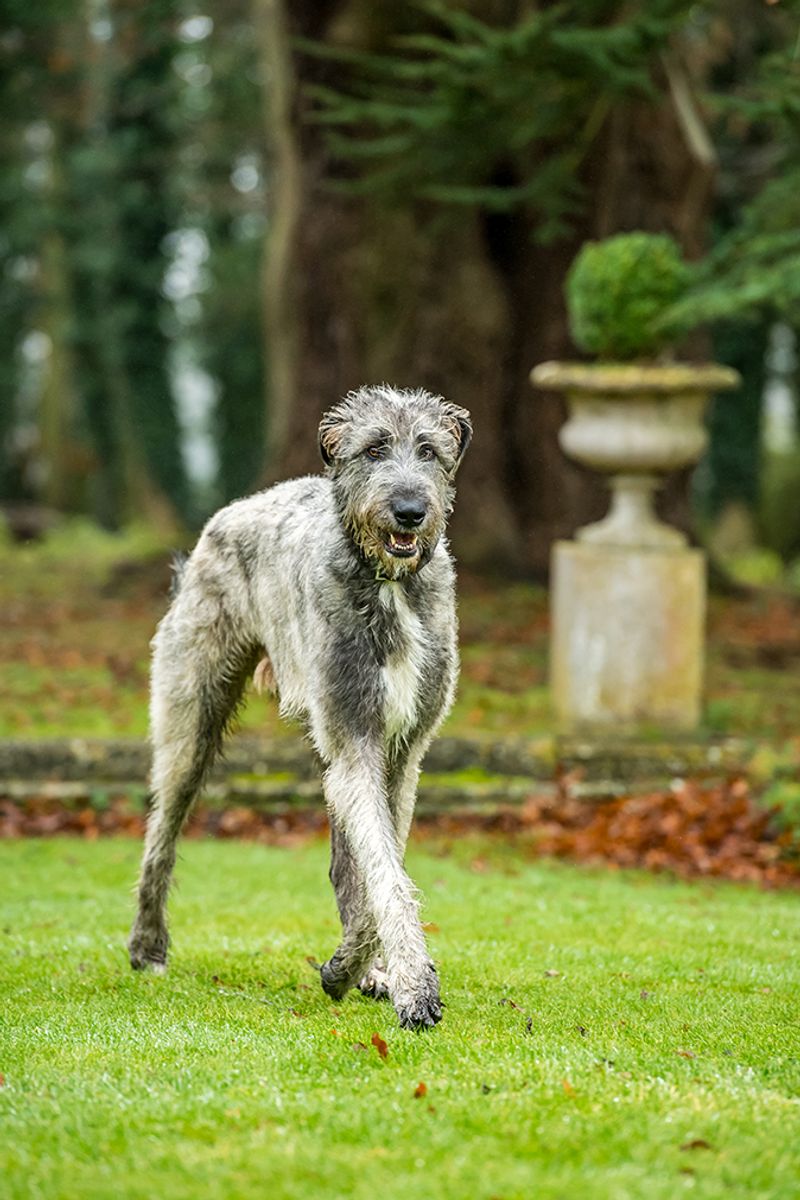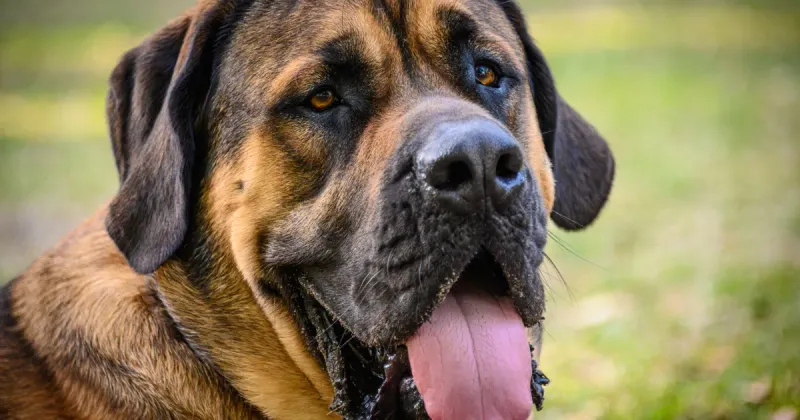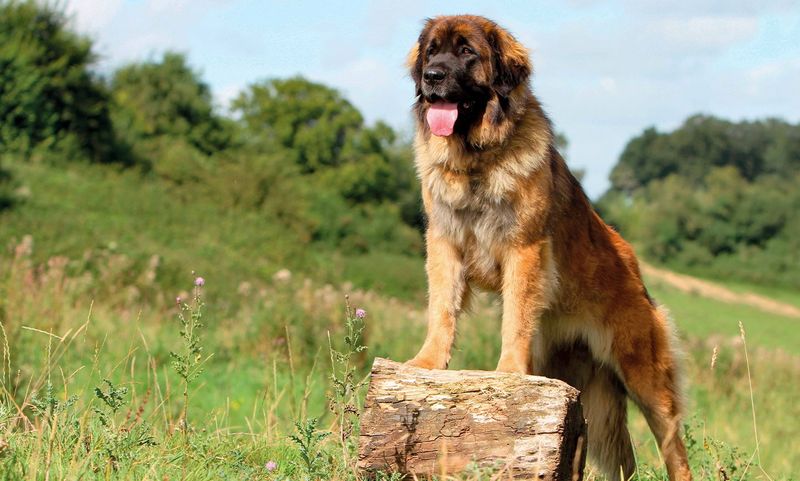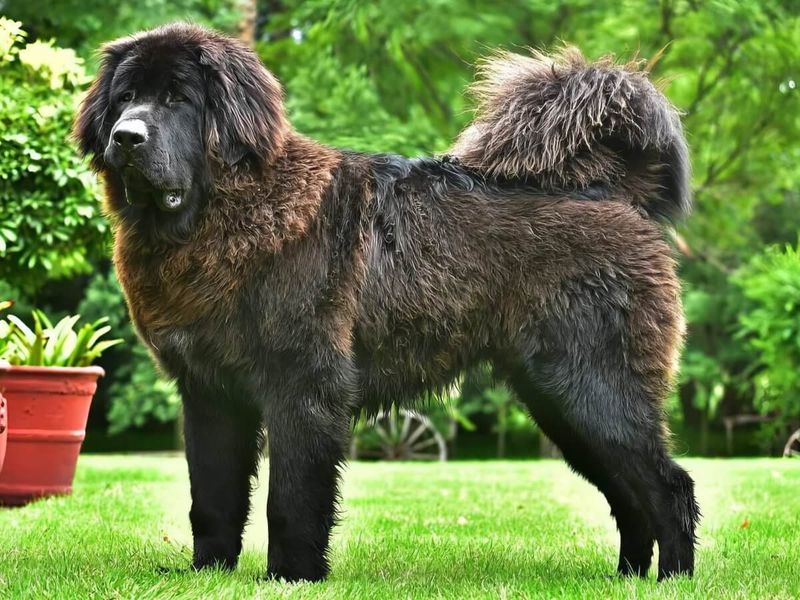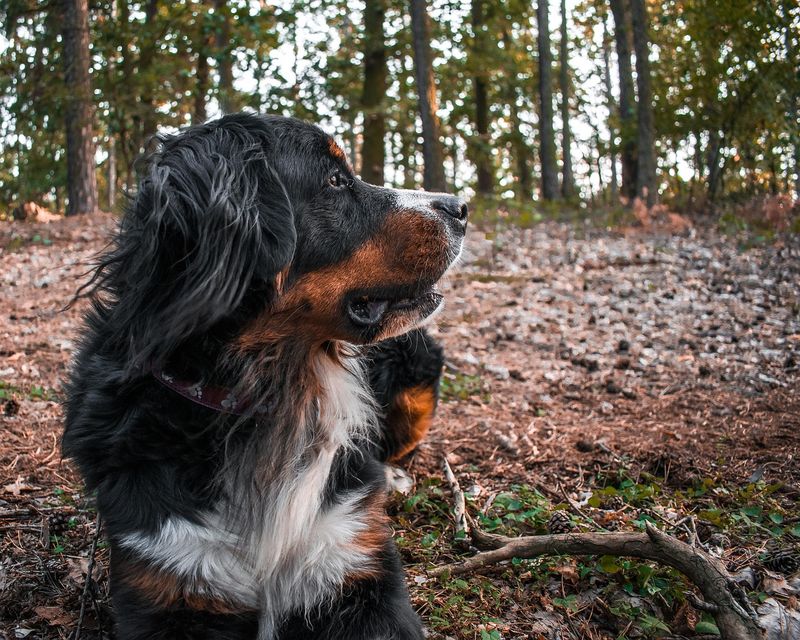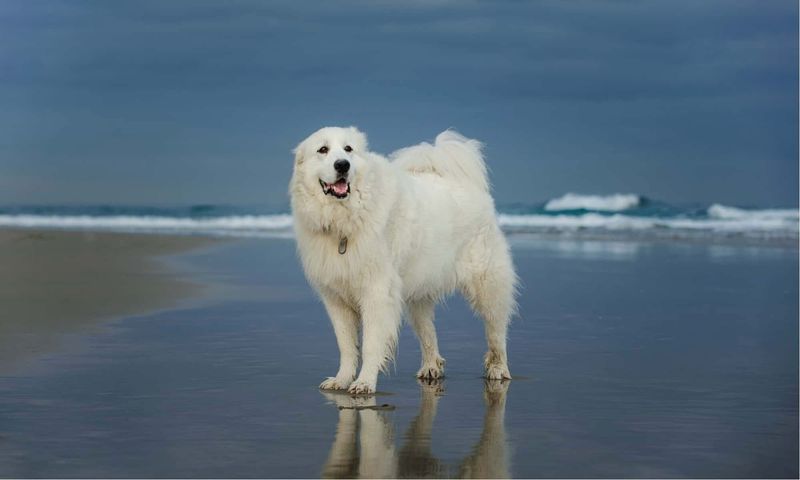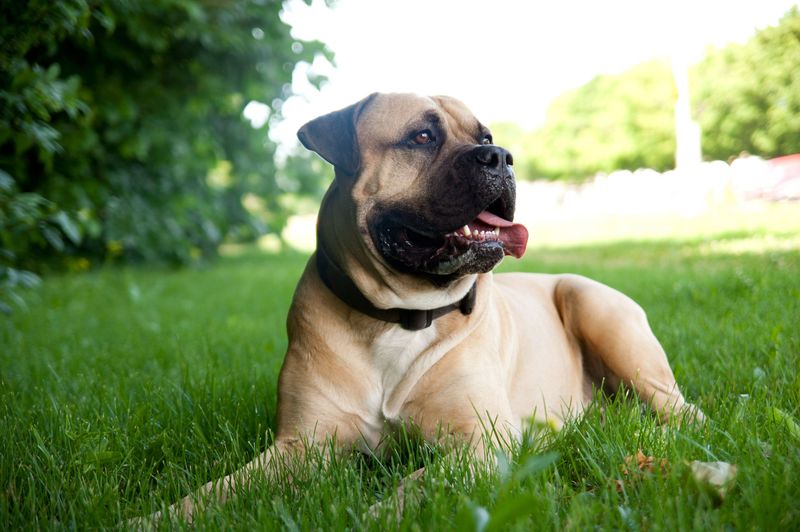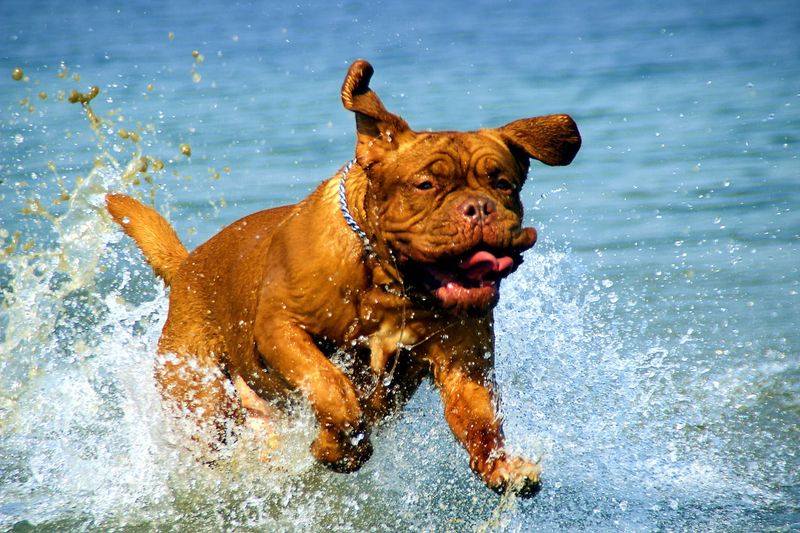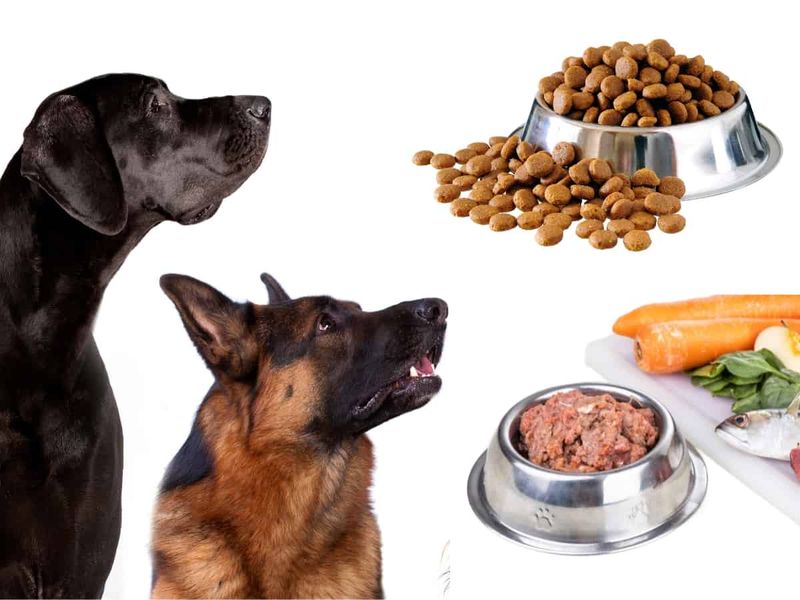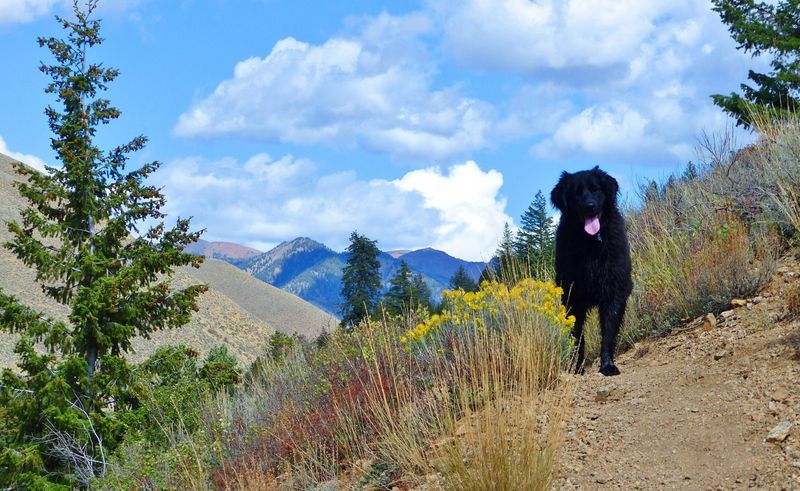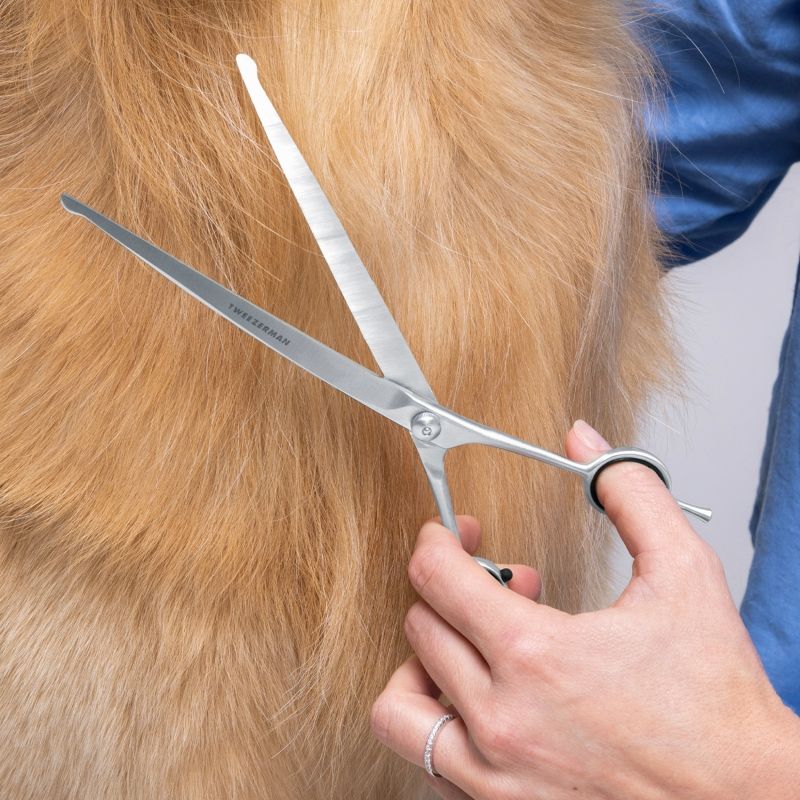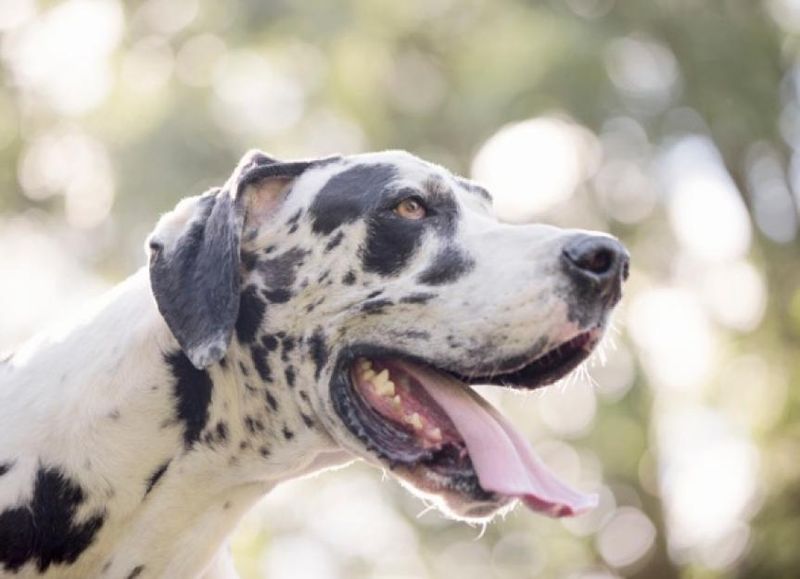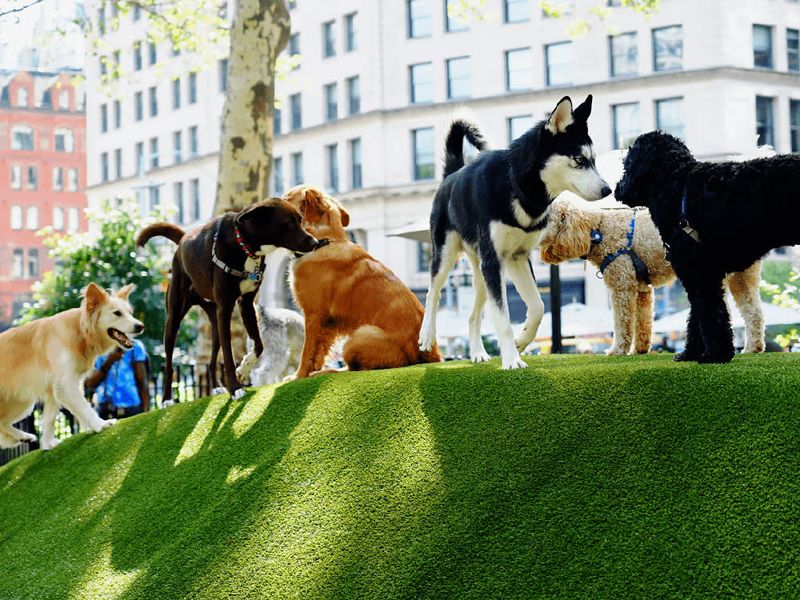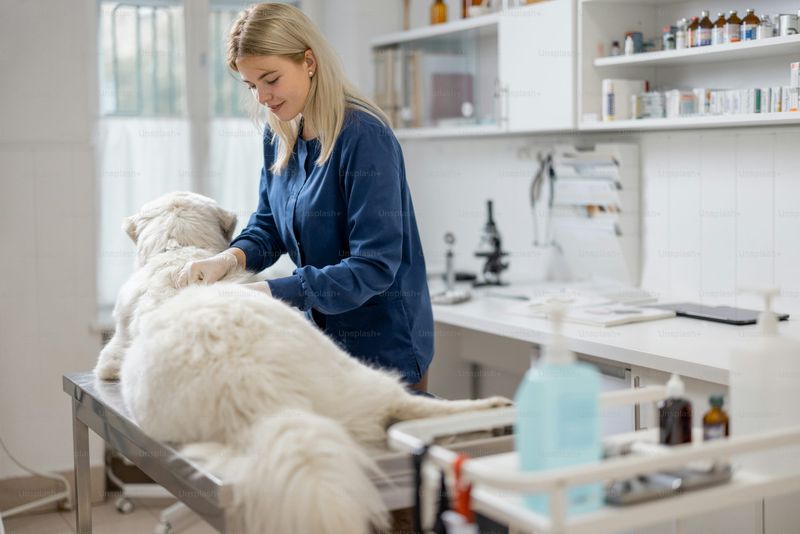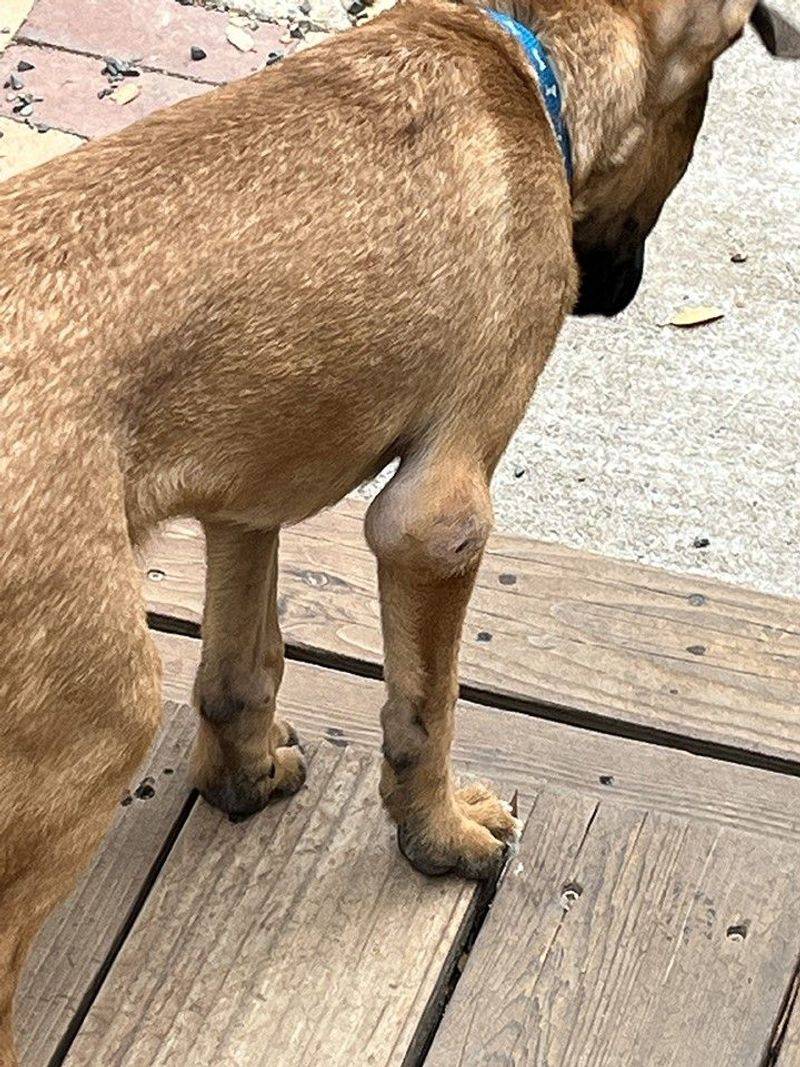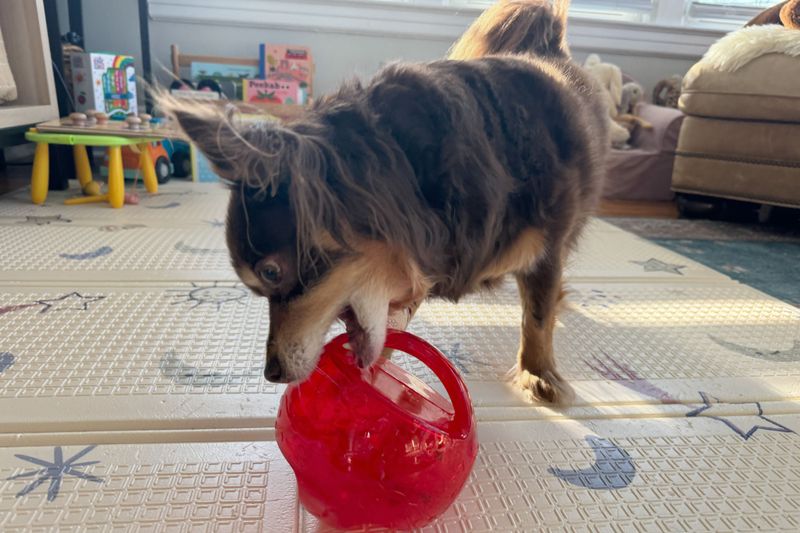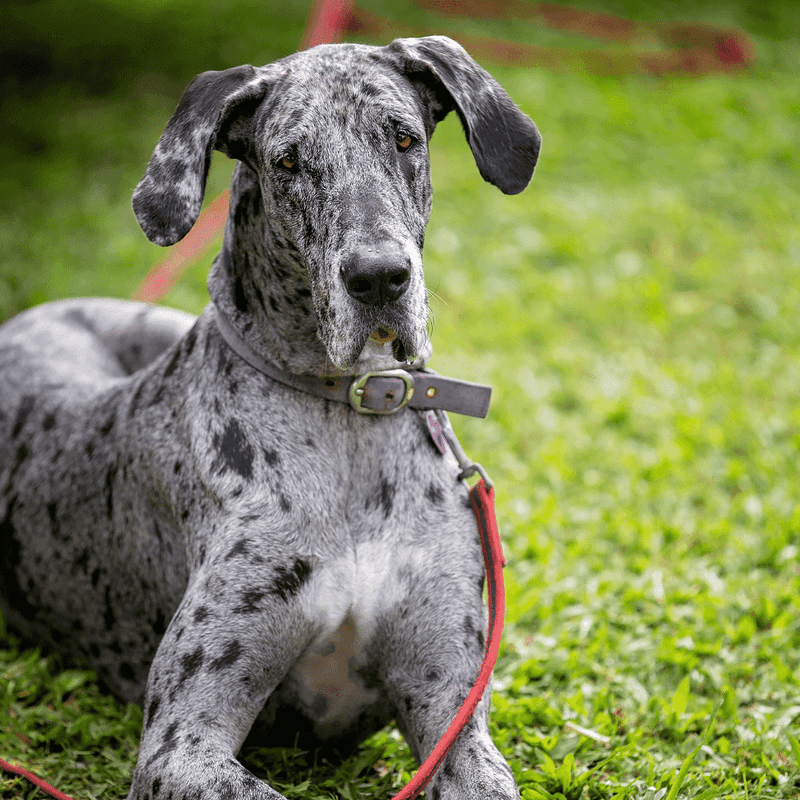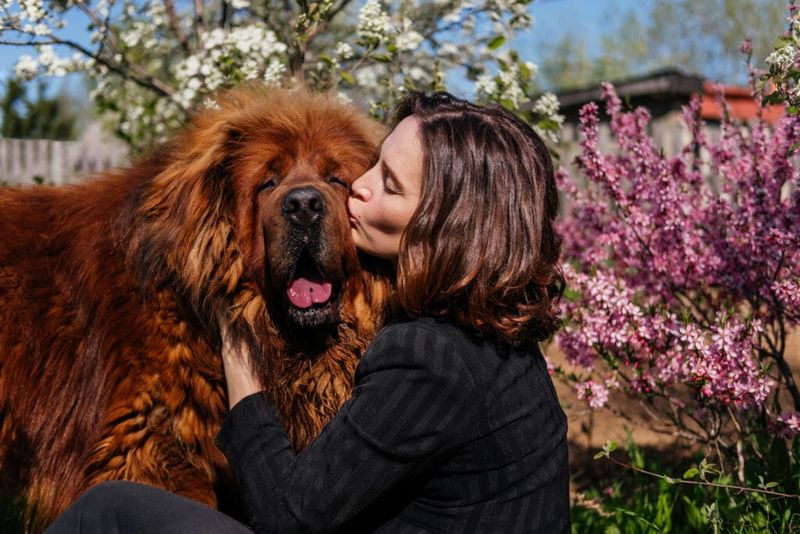Giant dog breeds are fascinating companions, known for their impressive size and gentle nature. However, their massive frames can come with unique challenges that require careful management. Whether it’s finding the right space for them to roam or ensuring their health needs are met, owning a giant dog involves a commitment to understanding their distinct needs. In this blog post, we’ll explore 11 giant dog breeds that can be a bit challenging to manage and provide you with 11 expert-backed tips to keep them healthy and happy. Get ready to embark on a journey with these majestic giants!
Saint Bernard
Saint Bernards are a towering presence with a heart as warm as their fluffy coat. Their imposing size requires plenty of space to roam freely. Historically used for rescue missions in the Swiss Alps, they are known for their gentle demeanor. However, managing their weight and ensuring proper exercise is crucial to preventing health issues. A balanced diet and regular vet check-ups are necessary for their well-being. Grooming is another aspect to consider as their dense fur can become matted if not cared for regularly. Despite these challenges, their loyal companionship makes every effort worthwhile.
Great Dane
Great Danes, often referred to as gentle giants, command attention with their statuesque build. Their size, however, can present challenges in a standard home setting. These playful giants need ample room to stretch out and play. Socialization is key, as their sheer size can be intimidating to newcomers. Regular exercise is essential to prevent obesity and joint problems, common in this breed. A supportive bed and joint supplements may aid in comfort and health. Despite their size, Great Danes are affectionate and thrive on human interaction, offering love and loyalty in abundance.
Newfoundland
With a heart as big as its paws, the Newfoundland is every child’s gentle guardian. Known for their swimming prowess, these dogs require plenty of exercise and mental stimulation. Their thick, water-resistant coat demands regular grooming to prevent skin issues. Although they are gentle, their size means they can accidentally knock over smaller children or items. Training and socialization from an early age help in managing their exuberant nature. Their affectionate personality and protective instincts make them wonderful family pets, while their loving eyes and wagging tails win hearts effortlessly.
Irish Wolfhound
Irish Wolfhounds embody grace with their slender yet powerful frames. Known historically for hunting wolves, these dogs now enjoy a more laid-back lifestyle. Despite their size, they are gentle with people and animals alike. Regular exercise helps maintain their lean physique, while their wiry coat needs occasional grooming. They are prone to certain health issues like bloat, so monitoring their diet is essential. These gentle giants enjoy lounging and make excellent companions for leisurely strolls. Their calm and loving nature provides solace and companionship to those lucky enough to have them.
Mastiff
Mastiffs are known for their calm demeanor and protective instincts, often described as gentle giants with a vigilant gaze. Their large size requires a spacious environment to thrive. Regular exercise and a well-balanced diet are crucial to prevent obesity, a common concern in this breed. Their short coat is relatively low maintenance, but their skin folds need attention to prevent infections. Mastiffs are typically loyal and protective, making them excellent guard dogs. They may appear aloof to strangers, but their affection and loyalty to their family are unmatched, providing comfort and security.
Leonberger
Leonbergers are majestic and fun-loving dogs, known for their lion-like appearance and playful spirit. Their thick double coat needs regular grooming to keep it looking pristine. These dogs are active and require plenty of exercise to keep them happy and healthy. Socialization and training are essential to manage their boisterous nature and ensure they are well-behaved. Their size and energy can be overwhelming, but their friendly disposition makes them wonderful family pets. Whether hiking in the woods or playing in the backyard, a Leonberger’s joyful presence is truly heartwarming.
Tibetan Mastiff
Tibetan Mastiffs are ancient breeds known for their guardian instincts and majestic appearance. These independent dogs thrive in large spaces where they can roam freely. Their thick, double coat requires regular grooming to prevent matting. Socialization is important, as their protective nature can lead to aloofness with strangers. Consistent training is essential to manage their sometimes stubborn demeanor. Despite their aloofness, they are deeply loyal to their families and make excellent companions for those who appreciate a strong-willed dog. Their regal presence and protective instincts are truly captivating.
Bernese Mountain Dog
Bernese Mountain Dogs are known for their striking tri-color coats and gentle temperament. Their large size requires ample space and regular exercise to prevent obesity. These dogs are social and thrive in family environments where they can interact and play. Their thick coat requires brushing to prevent matting and keep it healthy. Training and socialization from an early age help manage their exuberant nature. Despite the challenges of their size and grooming needs, their loving and affectionate nature makes them cherished companions, bringing joy and warmth to any home.
Great Pyrenees
Great Pyrenees are known for their guardian instincts and calm demeanor. These dogs have a strong protective nature, often watching over their family with a vigilant eye. Their thick, weather-resistant coat requires regular grooming to maintain its pristine condition. They thrive in spacious environments where they can roam freely. Socialization and consistent training help manage their independent nature. While they may be aloof with strangers, their loyalty and affection for their family are unwavering. Their majestic presence and gentle soul create a sense of security and companionship.
Bullmastiff
Bullmastiffs are renowned for their strength and protective instincts, making them excellent guard dogs. Despite their imposing presence, they are known for their affectionate nature towards family members. These dogs require regular exercise to maintain a healthy weight and prevent obesity-related issues. Their short coat is relatively low maintenance but requires occasional brushing to keep it clean. Socialization and training from an early age are crucial to manage their strong-willed nature. Their calm and steady demeanor, combined with their unwavering loyalty, makes them trustworthy companions.
Dogue de Bordeaux
The Dogue de Bordeaux, with its iconic wrinkled face, is both a symbol of strength and affection. Known for its muscular build, this breed needs regular exercise to maintain a healthy physique and prevent obesity. Their short coat requires minimal grooming but attention to skin folds is essential to prevent infections. Socialization and training are important to manage their protective instincts, ensuring they are well-mannered around strangers. Their deep loyalty to their family and protective nature make them excellent companions, offering both security and warmth to those they love.
Feeding and Nutrition
Feeding giant dogs requires careful consideration of their nutritional needs. High-quality kibble, rich in protein and essential nutrients, forms the foundation of their diet. Fresh vegetables and lean meats can be added to provide variety and additional nutrients. Monitoring portion sizes is crucial to prevent obesity, a common issue in large breeds. Regular vet consultations help tailor a diet plan that meets their specific needs. Supplements like glucosamine can support joint health. Providing balanced meals not only aids in maintaining a healthy weight but also ensures overall well-being and vitality.
Exercise Routine
Exercise is vital for the health and happiness of giant dog breeds. Regular walks, playtime, and engaging activities keep them physically fit and mentally stimulated. Incorporating variety in their exercise routine, such as hiking or playing fetch, prevents boredom and encourages enthusiasm. Exercise should be tailored to their age and health condition to avoid strain on joints. Giant dogs often enjoy accompanying their owners on outdoor adventures, fostering a strong bond. Ensuring they get adequate exercise not only prevents obesity but also promotes a healthy, active lifestyle.
Grooming Essentials
Giant dogs need regular grooming to maintain their coat and overall hygiene. Investing in quality grooming tools such as brushes, combs, and nail clippers is essential. Regular brushing helps prevent matting and reduces shedding, particularly for long-haired breeds. Bathing should be done using dog-friendly shampoo, considering their skin sensitivity. Regular ear cleaning and dental care are also important aspects of grooming. Grooming sessions not only keep them looking their best but also provide an opportunity to check for any health concerns, fostering a healthy and happy companion.
Training Techniques
Training giant dogs requires patience and consistency. Positive reinforcement techniques, such as rewarding good behavior with treats and praise, are effective in encouraging desired actions. Early socialization is crucial to prevent behavioral issues and ensure they are well-adjusted in various situations. Training sessions should be short and engaging to maintain their interest and prevent boredom. Advanced training can include obedience classes to enhance their skills and strengthen the bond with their owner. With the right approach, training becomes an enjoyable and rewarding experience for both dog and owner.
Socialization Tips
Socializing giant dogs is an important aspect of their development and well-being. Introducing them to various environments, people, and other dogs from an early age helps them become well-rounded companions. Regular visits to dog parks and structured playdates offer opportunities to practice social skills. Positive experiences during socialization build confidence and reduce anxiety. Owners should monitor interactions to ensure safety and prevent overwhelm. Socialization not only enriches their life but also strengthens the bond with their human family, leading to a happy and confident dog.
Health Check-Ups
Regular health check-ups are crucial for maintaining the well-being of giant dogs. Routine vet visits help monitor their overall health and catch potential issues early. Vaccinations, dental care, and parasite control are vital aspects of their healthcare regimen. Regular screenings for common large breed ailments, such as joint problems and heart conditions, ensure timely intervention. Owners should maintain a health record, noting any changes in behavior or physical condition. A proactive approach to healthcare not only prolongs their life but also enhances their quality of life.
Joint Health
Joint health is a significant concern for giant breeds, as their large frames can put extra pressure on joints. Providing supportive bedding, like orthopedic beds, helps alleviate discomfort and promote restful sleep. Supplements such as glucosamine and fish oil support joint function and reduce inflammation. Regular, low-impact exercise, like swimming, strengthens muscles without straining joints. Maintaining a healthy weight is essential to avoid excessive stress on joints. Owners should monitor for signs of discomfort, such as limping, and consult their vet for personalized care. Prioritizing joint health ensures a comfortable and active life.
Mental Stimulation
Mental stimulation is vital for keeping giant dogs happy and well-behaved. Puzzle toys, interactive games, and training exercises challenge their minds and prevent boredom. Enrichment activities, such as scent games or learning new tricks, provide mental engagement and strengthen the human-dog bond. Rotating toys and introducing new challenges keep them interested and eager to explore. Adequate mental stimulation reduces the likelihood of destructive behaviors caused by boredom. Providing a variety of engaging activities ensures a well-rounded and content companion, enriching their life and enhancing their happiness.
Safe Environment
Creating a safe environment is essential for the well-being of giant dogs. Spacious living areas with non-slip flooring help prevent accidents and provide room to move comfortably. Secure fences ensure they can explore the outdoors safely. A designated play area with toys and comfortable resting spots enhances their living space. Regularly checking for hazards, such as sharp objects or toxic plants, promotes safety. A well-organized and dog-friendly environment not only prevents injuries but also fosters a sense of security and happiness, allowing them to thrive in their home.
Bonding Activities
Bonding with giant dogs strengthens the emotional connection and enhances their happiness. Engaging in activities like hiking, beach walks, or playing fetch fosters companionship and mutual enjoyment. Regular interaction, such as grooming sessions or quiet time together, builds trust and affection. Understanding their unique personality and preferences helps tailor bonding experiences that resonate with them. Sharing adventures and quality time enriches their life and creates lasting memories. A strong bond not only boosts their confidence but also ensures a harmonious and fulfilling relationship with their human family.
